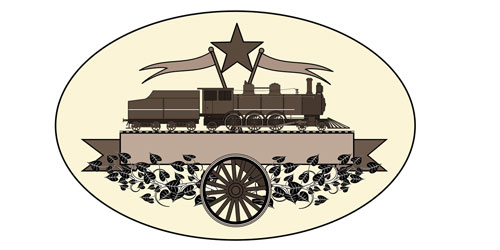《论语诠解英文版》——Chapter IX"子罕" (Zihan)
[9- 1] 子罕言利, 与命与仁。
9.1 The Master seldom talked about personal advantage. Instead, he spoke the appointments with Heaven and praised true virtue.
[Reading] Confucius had a low opinion of those who think only of personal advantage. While he was not opposed to the pursuit of material wealth, as we discussed previously, Confucius has made it clear that any such pursuit should be conducted within the framework of righteousness and moral integ rity. In other words, when he had to choose from righteousness and personal gain, he would always put the former above the latter. It is in this sense that Confucius talked, rarely though, of personal gain: "子罕言利 Zi han yan li." In contrast, self-cultivation through pursuing virtue, benevolence, and con scious appointments with the will of Heaven constitute the core values of Confucian thought.
[9- 2] 达巷党人曰: “大哉孔子!博学而无所成名。"子闻之,谓门弟子曰: “吾何执?执御乎?执射乎?吾执御矣。"
9.2 Men of the village of Daxiang said, "How great the Master is! His learn ing is so extensive that he is skillful in almost everything." When the Master heard this, he said to his disciples, "On what shall I focus as my expertise? Shall I focus on charioteering, or shall I try archery? I will try charioteer ing.
[Comment] "达巷 d6 xiang" refers to "党 dang ," which was a small com munity in ancient China, not unlike a neighborhood. Each "党 dang" of these units consisted of five hundred households."党人 da ng r的 " translates as something like "rural people." "执 zh f" connotes "专执 zhua n zhf" to sug gest "to focus on, to practice in a particular area of expertise," while " 御yu" means "to drive a horse carriage." "射 s h扩 re fers to "archery." Tradi tionally, there have been two different interpretations of this section. One view holds that the people of Daxiang believe the Master is so knowledgea ble and so learned that he knows almost everything. However, another holds that extensive though the Master's learning is, he is unknown for expertise in any particular area. We believe the first interpretation is the stronger choice in this context.
[Reading] Here, Confucius is presented as humble and unpretentious. When praised for his erudite knowledge and learning, he remarked that he may only excel at "charioteering." This is his humble way of saying that he was not as knowledgeable as people would believe him to be.
[9- 3] 子曰: “麻冕,礼也;今也纯,俭,吾从众。拜下,礼也; 今拜乎上,泰也。虽违众,吾从下。"
9.3 The Master said, "The rules of propriety prescribed that a sacrificial cap should be made of linen. But nowadays people use a silk one instead. It is economical and easy to make. I follow the common practice. The rules of propriety prescribed that ministers should bow outside the hall. But nowa days they bow inside the hall. This indeed is haughty. Although this is com mon practice, I will go against it and continue to bow outside the hall."
[Com ment] "麻冕 m6 mian" is a "black cap made of linen," while "纯chun" refers to "dark silk" -the material that made up said caps."上 s ha ng" means "堂上 ta ng shang" to suggest "inside a ceremony hall" and "泰 ta i" connotes "haughty, arrogant."
[Reading] This section discusses Confucius'insightful understanding of the rules of propriety. Contrary to the stereotyped image of a Confucius who argued for sticking with the rites of propriety of the Zhou Dynasty indis criminately, here we see a prudent Confucius who opted for following the current practice of using a silk cap to replace one made of linen for sacrifi cial ceremonies because it is economical and easy to make. To Confucius, while this practice was an alteration of the Zhou rules of propriety, it was a sensible adjustment, without compromising the integrity of the ceremonies. However, he insisted on the ritual of ministers bowing to a prince outside a ceremony hall because it was a serious matter of showing reverence and respect for the power and authority bestowed on the prince. Ultimately, this was what the Zhou rules of propriety were all about.
[9- 4] 子绝四:毋意 ,毋必 ,毋固 ,毋 我。
9.4 The Master distinguished himself with four outstanding qualities: he never assumed things, he never passed arbitrary judgment, he was never conceited, and he was never egoistic.
[Comment] "绝 ju 令 can mean "to stop," but it can also describe something as "useless." " 毋 wu" is used interchangeably with " 无 wu ," meaning "nothing, none." "意 yl" connotes "to assume, on the assumption." "必 bl" indicates that one "should, must," while " 固 g u" translates as "conceited, complacent."
[Reading] Confucius was great because he managed to free himself of the four major faults which seemed to plague most of the people in his time: assumption, arbitrary judgment, conceit, and egotism. One of the objectives of self-cultivation is to get rid of these faults so that men would be able to obtain virtue, integrity, benevolence, learning, and altruism in hopes of becoming 君子Junzi.
[9- 5] 子畏千匡, 曰: “文王既没,文不在兹乎?天之将丧斯文也, 后死者不得与千斯文也;天之未丧斯文也,匡人其如予何?”
9.5 The Master was imprisoned for several days in a place called Kuang. He said, "After King Wen died, his way of truth including the rules of propriety are all within me, aren't they? If Heaven had wished to destroy this way of truth, it would not have allowed me to learn it. If Heaven does not intend to let it perish, then there is nothing the people of Kuang can do to me, isn't it?"
[Com ment] " 畏 we i" is used interchangeably with "围 w旬 meaning "to be imprisoned." "匡 kua ng" is the name of a place in ancient times. "文 w的" refers to classics including the Six Arts. "兹 zT'' means "here " and "后死者 ho u sT zhe" was the way in which Confucius referred to himself. "其如予何 qi ru yu h令 asks the question "What can they do to me?"
[Reading] As discussed previously, Confucius was serious about tuning himself into the will of Heaven. He firmly believed that he was engaged in the cause of truth bestowed by Heaven. As such, when he was harassed by mobs in Kuang and when he was desperately aware of the limitations of himself as an individual, he entrusted himself to the will of Heaven, which in his view justified his cause with legitimacy and from which he derived spiritual strength that sustained his activities, enabling him to overcome all worries and fears.
[9- 6] 太宰问千子贡曰 : “夫子圣者与?何其多能也?”子贡曰:
“固天纵之将圣,又多能也。"子闻之,曰: “太宰知我乎!吾少也贱, 故多能鄙事。君子多乎哉?不多也。"
9.6 A high-ranking official asked Zigong, "Why is your master so talented? Is he a sage?" Zigong replied, "This is because Heaven intended him to be a sage and therefore endowed him with many talents." Having heard this, the Master said, "Indeed this minister understands me! When young, I was very poor and had to learn to acquire many low skills. Does a superior man need to possess so many skills? No, there is no need for him to do so."
[Comment] " 太 宰 ta i zai" refers to a high-ranking official in the court and “固 gu" is used changeably with "故 g u," which translates "as it was, origi nally." " 将 jia ng" means "will."
[Reading] This section demonstrates that Confucius was not just a man of high-sounding rhetoric on the topics of perfect virtue and moral integrity. He was also well versed in what he himself would call "low skills." Confucius stressed the fact that when he was young, he had to perform many menial jobs which required no skills in order to make a living. This shows clearly that he did not regard himself as a sage and a genius who was "生而知之者sheng er zhT zhT zh色" (a man of supreme wisdom who is born with knowl edge) (See Section 20, Chapter VII).
[9- 7] 牢曰: “子云: `吾不试,故艺。'"
9.7 Lao stated, "The Master said,'My ideas are not appreciated in society, therefore I have to learn various other skills."'
[Com ment] "牢 16 0 " was a disciple of Confucius. His name was "琴牢 qf n 16 0 ." " 试 s hl" suggests "to be useful to society." In an extended sense, it may also imply "to hold a government position." " 艺 yl" means "skill."
[Reading] As in the preceding section, here Confucius indicated that he was neither a sage nor a genius. He learned various other skills that did not seem to relate to his cause of truth-pursuit because, in his words, his ideas were not readily appreciated in society. This is another way of saying that Con fucius was indeed a man of humility who, eminent and distinguished as he was, did not try to hide his impoverished childhood.
[9- 8] 子曰: “吾有知乎哉?无知也。有鄙夫问千我,空空如也。 我叩其两端而竭焉。"
9.8 The Master said, "Am I knowledgeable? I am not. When uneducated people came to consult me, if I have no knowledge of his question, I would first carefully check with him about all details of the things in question to make sure that I fully understand. I would then answer him to the best of my ability."
[Com ment] "知 zhT'' means "knowledge." '鄙 夫 bT fu" refers literally to "farmers," but in a general sense, it may also refer to uneducated people more broadly. There have been two different interpretations of " 空空如也k6ng k6ng ru ye." Some believe that Confucius acknowledged his own ignorance, while others believe it implies that when " 鄙夫 bT fO" came to consult Confucius, the former was "空空如也 ko ng kong ru ye," mean ing "full ignorance." In terms of syntactical structure, the first interpretation proves the stronger translation in this context. "llP kou" means "to ask, to inquire." "两端 lia ng duan" implies "the beginning and the end of things," that is, "all details of the things under discussion."
[Reading] Of all the excellent qualities Confucius possessed as one of the greatest thinkers and educators in Chinese history, humility and humble ness stand out distinctly. As Confucius repeatedly said, he was not born with knowledge. Rather, the key to success lies in perseverance, determination and tenacity. To him, equally important is that if one lacks knowledge of a question under discussion, he should "叩其两端而竭焉 ko u qf liang duan er jie yon," which can be translated as "carefully check with all details of the things in question to make sure that one fully understands."
[9- 9] 子曰: “风鸟不至,河不出图,吾已矣夫!”
9.9 The Master said, "The Phoenix has not come, nor has the Yellow River presented the Picture of the Eight-Trigrams. Alas, it seems in the remainder of my life my ideas will not be appreciated in society and it may be all over with me!"
[Comment] "凤鸟 伶ng niao" refers to "凤凰伶ng hu6ng," a legendary bird in Chinese mythologies. "河 he" refers to "黄河 hu6 ng h令 (the Yel- low River). " 图 tu" refers to " 八 卦 图 ba gua tu" (Picture of the Ultimate and the Eight-Trigrams). In Chinese culture, "风鸟至, 河出图伶ng niao zhl, he chO tu" is a symbol of good luck, which forecasts the emergence of a sage emperor who will bring peace to the world.
[Reading] In this section Confucius was lamenting the disappearance of the way of truth. All his life he strived to restore the Zhou institutions and rules of propriety but to no avail. Later in his life, he became increasingly pessi mistic about the possibility of an ideal world of ever-lasting peace.
[9- 10] 子见齐衰者、冕衣裳者与普者, 见之, 虽少,必 作 ; 过之, 必趋。
9.10 When the Master saw a person in mourning dress, an official in full cer emonial garments, or a blind person, even if they were younger than he, he would stand up. When passing pass by them, he would walk swiftly.
[Com ment] " 齐衰者 zT cuT zh 色" describes "a person dressed in mourning clothing," while '冕 衣裳者 mia n yT ch6ng zh 色" translates as "an official in ceremonial clothing for sacrificial ceremonies." " 少 s hoo " refers to "the youngsters." " 作 zuo " indicates the action "to stand up" while " 趋 q u" means "to walk quickly in small steps."
[Reading] This section portrays Confucius as a man of compassion, re- spect and benevolence. As a 君子Junzi he loved all men and treated them sincerely in accordance with the rules of propriety. Sad as he was about the disappearance of the way of truth, he would nonetheless diligently practice the Zhou proprieties in his own way.
[9- 11] 颜渊喟然叹 曰: "仰之弥高,钻之弥坚。瞻之在前,忽焉在后。夫子循循然善诱人, 博我以文, 约我以礼, 欲罢不能。既竭吾才, 如有所立,卓尔。虽欲从之,末由也已。"
9.11 Yan Yuan sighed, "The more I looked up to the doctrines of the Master, the higher they seemed to have risen up. The deeper I studied them, the more profound they seemed to have become. While I was perusing them before me, they seemed to have reappeared behind me. However, the Master skill fully guided me, step by step. He has empowered me with great learning and taught me the rules of propriety. Even if I wished to abandon my studies, I cannot do so. Having tried my very best, I still find the Master's doctrines rising up imposingly before me. I wish to climb up along, but I cannot find a way."
[Comment] "喟然ku1 ran" means "to sigh," while "循循 xu n xun" indi cates the state of being "in good order" or "well-planned." There have been two interpretations over "如有所立ru you su6 11." One view holds that the phrase refers to the accomplishments Confucius made. However, another holds that it refers to the accomplishments not of Confucius, but rather of Yan Yuan. In this context, we favor the first interpretation and believe it describes the accomplishments of Confucius.
[Reading] This section records the tribute of Yan Hui, an eminent disciple of Confucius. Yan Hui spoke very highly of the Master, extolling his excel lent accomplishments such as virtue, honesty, benevolence, knowledge, compassion, moral integrity and altruism. For Yan Hui, the Master was a liv ing embodiment of all the distinguishing qualities a sage possesses. One of such supreme qualities that particularly impressed Yan Hui was the way the Master taught his disciples: " 循 循 善 诱 xun xun shan you" (The Master skillfully guided me, step by step), which has later become one of the guid ing principles of Chinese education.
[9- 12] 子疾病,子路使门人为臣。病间,曰:" 久矣哉,由之行诈也! 无臣而为有臣。吾谁欺?欺夭乎!且予与其死千臣之手也,无宁死千二三子之手乎! 且予纵不得大葬,予 死千道路乎?”
9.12 The Master was seriously ill. Zilu had the disciples function as the Master's "ministers" in preparation for his funeral. During a remission, the Master said, "Zhong You has been doing this deceitful practice for a long while. Pretending to have ministers when I actually have none; whom do I cheat? Heaven? Furthermore, I would rather die in the hands of you, my disciples, than in the hands of ministers. Though I may not get a pompous burial like a superior man, will I die on the road with no one to take care of me?"
[Com ment] " 病 间 blng jian" means "remission," in this case, a remission of illness. "二三子 e r son zT" refers to Confucius' disciples. "无宁 W U ning" connotes "would rather than some other alternative."
[Reading] One of the core values of Confucian thought is honesty. This section describes how Confucius rejected the idea of a pompous funeral contrived by Zilu for him. The rites of propriety regarding funeral and burial occupy a central place in Confucian thought. Any violation of such Zhou rituals is regarded as a willful transgression of the bounds of moral prudence and social code. Zilu arraigned for some disciples to pose as family gover nors for Confucius so that there would appear to be, for the Master, a proper funeral officially prescribed to a minister. Confucius was strongly opposed to Zilu's idea because first of all it was a deceit. Secondly, it was a defiant act of disobeying the Zhou rules of propriety.
[9- 13] 子贡曰: “有美玉千斯,韦且桉而藏诸?求善贾而沽诸?” 子曰: "沽之哉!沽之哉!我待贾者也。"
9.13 Zigong said, "There is a splendid gem here. Would you collect and keep it in a case or would you look for a merchant and sell it to him?" The Master said, "Sell it! Sell it! But I would wait for one who can appreciate the gem."
[Comment] "韦品 yun" means "to collect" and "犊 du" is the word for a "box." “贾g u" refers to "a merchant" and " 沽 g O" connotes "to sell."
[Reading] This section uses gems as a metaphor to illustrate Confucius' aspiration of serving society with his talents and also his expectation that some enlightened state lords and princes may appreciate his ideas of governance. Like a piece of rare gem, Confucius was waiting to be discovered and appreciated by those in power so that he would be able to use his knowledge to help them reinstitute the Zhou rules of propriety. This idea echoes what he taught his disciples in Chapter XIX "学而优则 仕 xue er you ze shl," which translates as "After one has successfully accomplished his studies, he should participate in governance." "待贾而沽 dal jia er gO" (literarily: waiting for a merchant who will buy for a good price) has thus become a popular saying for the Chinese.
[9- 14] 子欲居九夷。 或曰: "陋,如之何?”子曰: “君子居之, 何陋之有?”
9.14 The Master desired to go and dwell among the nine primitive tribes of the east. Someone said, "Those places are so backward and isolated! How can you live there?" The Master said, "If a superior man dwells among them and educates them, they would not be backward and isolated anymore."
[Com ment] " 九 夷 ji u yf" describes people of "ethnic minorities in the east." There have been two interpretations over "君子 jun zT." The first view holds that it refers to "其子 qf zT," who was a prime minister in the Shang Dynasty (1558-1046 BC). The other believes that it refers to Confucius himself. Given the context of this passage the second interpretation proves the more logical choice.
[Reading] Confucius was disappointed that feudal state lords and princes failed to appreciate his ideas of governance and thus thought of migrating to the land of primitive tribes, living the life of a hermit. In the meantime he believed that so-called "barbarians" of primitive tribes were teachable as long as they were educated by superior men of true virtue who might en lighten them.
[9- 15] 子曰:“吾 自 卫 反鲁,然 后 乐 正 ,《 雅》、《颂》各得其所。"
9.15 The Master said, "Only after I came back from Wei to Lu did the music get sorted out. And the fine music of Ya and Song were now found in their proper places."
[Comment] "牙佳 ya" and "公面 s o ng" are the two types of poems in the Clas sic of Odes.
[Reading] This section discusses how Confucius put the music of Ya and Song in their proper place by sorting out various types of music in the State of Lu. As mentioned previously, one of the core values of Confucian thought is " 乐 yu 扩 (music), which is also one of the six important skills he advo cated. To Confucius, music is not a simple matter of playing out notes on an instrument. Rather, it is an important mechanism of self-cultivation, which harmonizes emotion and refines human nature.
[9- 16] 子 曰:“出 则 事 公 卿 ,入 则 事 父兄,丧事不敢不勉,不 为酒困,何有千我哉?”
9.16 The Master said, "At the court, I served my ruler and ministers faithfully; at home I served my father and elder brothers with filial piety; at funerals for relatives in the family clan I dutifully observed the rites of propriety and I never get into trouble with wine. Which of these things posed any problem for me?"
[Com ment] " 出 c h O" translates as "serving at a royal court," while "不勉 bu mian" implies that one "cannot but fulfill the rites of propriety."
[Reading] In this section Confucius reiterated the concepts of faithfulness and filial piety. Throughout the Analects, he emphasized the importance of diligently attending to these two obligations in two different realms. The first is public—”出 则 事 公 卿 c h Ci ze sh] gong qTng" (At the court, I served my ruler and ministers faithfully). The other is private—“人则事父兄 ru ze shl fu xiong" (At home I served my father and elder brothers with filial piety). Confucius believed that he had fulfilled these two requirements well in his life and thus stated, "Which of these things posed any problem for me?"
[9- 17] 子在川上曰: "逝者如斯夫,不舍昼夜!”
9.17 The Master, musing by a river, said, "Time passes by just like this river, never pausing day or night."
[Comment] There have been different interpretations over " 逝者 s hl zhe." We believe it refers simply to "the passage of time." However, in more broad sense, it may also imply all things which have occurred in the past.
[Reading] Here, Confucius lamented the passage of time, comparing it to a flowing water with no return. On a deeper level, he seemed to have senti ment over things that are made imperfect by the passing of time. The pole star changes, people live and die, states rise and fall, dynasties come and go. Nothing remains constant. Unchanged, however, was Confucius'fortitude to try to restore the Zhou institutions and rules of propriety, which parallels with what Thoreau wrote towards the end of his famous Walden, "If a man does not keep pace with his companions, perhaps it is because he hears a different drummer." For Confucius, this "different drummer" could be the disappearing voice of the Duke of Zhou, which he feels bad about having dreamed of less and less as he advanced in age.
[9- 18] 子曰: “吾未见好德如好色者也。"
9.18 The Master said, "I have not yet seen anyone who loves to befriend with people of the virtuous as much as he longs for beauty."
[Comment] "好德ha o de" translates as "inclined to making friends with people of the virtuous."
[Reading] What disappointed Confucius was society's lack of interest in and enthusiasm of self-cultivation through practicing virtuous deeds and moral values. Instead, people seemed to be more interested in indulging themselves in a sensuous life and in gratifying their senses with beauty. This lamentable feeling of Confucius brings the reader back to what he wrote in Section 9.9 of this chapter, "The Phoenix has not come, nor has the Yellow River presented the Picture of the Eight-Trigrams. Alas, it seems in the remainder of my life there will be no ideal world of ever-lasting peace. My ideas will not be appreciated in society and it may be all over with me!"
[9- 19] 子曰: " 譬如为山, 未成一赞, 止, 吾止也。譬如平地, 虽覆一赞, 进, 吾往也。"
9.19 The Master said, "Learning is like building a mound. If I stop before the last basket of earth which would complete the work, that is my own stop ping. It is also like building a mound on the ground. If I continue with one basketful after another, it is my own continual effort towards completion."
[Com ment] "赞 ku1" means "basket."
[Reading] In this section Confucius discussed the importance of persever ance and tenacity with which one should work his way towards success. To Confucius, the key to triumph is dedication and commitment. It is up to oneself, not others, to make a choice about his cause and how to accomplish his goal. This is particularly true of both learning and self-cultivation.
[9- 20] 子曰: “语之而不惰者,其回也与!”
9.20 The Master said, "Of all my students, only Hui would whole-heartedly attend to my teaching and diligently put it into practice."
[Com ment] " 惰 d uo " means "懈怠 xie dai," connoting "lazy, not hard-working."
[Reading] Of all the disciples Confucius taught Yan Hui was outstanding. This is not because he was the most talented and intelligent, which he was not. What impressed the Master most are two excellent qualities in Yan Hui: he never blamed others and he never repeated his faults. (See Section 3, Chapter VI)
[9- 21] 子谓颜渊, 曰: "惜乎!吾见其进也,未见其止也。"
9.21 The Master, speaking of Yan Hui, sighed, "Alas, he died prematurely! I only saw his continuous progress. I never saw him stop."
[Comment] "惜乎 xT hu" refers to the premature death of Yan Hui, Confu cius'favorite disciple.
[Reading] Yan Hui may not be the most talented of all Confucius'disciples, but he is certainly among the most diligent and studious. As Confucius said, "I only saw his continuous progress. I never saw him stop." Living a very simple life, Yan Hui, however, "was delighted to learn, while others tried to stay away from the distress of a simple life. How admirable was Hui's true virtue," so exclaimed Confucius. (Section 11, Chapter VI)
[9- 22] 子曰: "苗而不秀者有矣夫!秀而不实者有矣夫!”
9.22 The Master said, "Some plants sprout but do not blossom. Some plants blossom but do not bear fruit."
[Com ment] " 苗 mi6o" describes "young plants beginning to grow." " 秀 xiu" connotes "bloom," while "实 s hf" means "to bear fruit."
[Reading] In this section Confucius compared plants to one's journey of success. Just as "Some plants sprout but do not blossom and some plants blossom but do not bear fruit," some people may have considerable potential for success but fail to accomplish their goal due to the lack of perseverance or willpower. Confucius wished that all his disciples succeed through their continuous efforts. Another reading of this section may be that Confucius la mented the pre-mature death of Yan Hui, his favorite disciple who was most dedicated and diligent yet he failed to reach the end of the journey.
[9- 23] 子曰: ”后生可畏,焉知来者之如今也?四十、五十而无闻焉,斯亦不足畏也已。"
9.23 The Master said, "The youth should be held with respect. How do we know that their future will not be as bright as ours in the present? But if people reach the age of forty or fifty yet still have not established themselves and are unheard of, then they will be unworthy of respect."
[Com ment] " 后生 ho u sheng" refers to youth. There have been two inter pretations over "无闻 wu w的":The first is "无声闻千世 WU sheng w知yu sh1" (nothing to be heard of in the world). The second is "无闻千道 WU wen yu dao" (to know nothing about the Way). We believe the first interpretation is the better choice in this context.
[Reading] It is interesting to note that while Confucius looked nostalgically at the "Gold Age" of Zhou, wishing to go back to the "good old days," he also believed that "The youth should be held with respect. How do we know that their future will not be as bright as ours in the present?" In other words, youth which represents the future, may exceed their elders who are of the present. In a sense, social progress is inevitable.
[9- 24] 子曰: “ 法语之言, 能无从乎?改之为贵。粪与之言, 能无说乎?绎之为贵。说而不绎, 从而不改, 吾末如之何也巳矣。"
9.24 The Master said, "How can one not assent to genuine advice? It is imperative that one follow this advice and remedy oneself accordingly. How can one not be pleased by compliments? It is imperative that one be fully aware of the intent contained in them. I simply do not know how to deal with those who are delighted with these words without inquiring into their intention and those who assent to advice without reforming themselves."
[Comment] "法语之言 fa yu zhT y6n" translates as "motto, precept." 潠与 之 言 xu n yu zhT y6n" connotes "sweet words, sycophantic remarks" and " 绎 yl" means "to analyze."
[Reading] Here, Confucius discussed the importance of attending to genuine advice and reforming oneself accordingly. He also warned that while men like compliments, it is imperative that they inquire into the intention behind such praise. This is because compliments are meant to please, whereas criti cism, which may sound bitter, intends to help.
[9- 25] 子曰: “主忠信,毋友不如己者,过则勿惮改。"
9.25 The Master said, "Take loyalty and faithfulness as fundamental princi ples. Do not make friends with those who are not your moral equal. Do not fear to reform yourself when you have faults."
[Reading] As in Section 8 of Chapter I, here Confucius once again em phasized the importance of making friends with those who are one's moral equals and who value loyalty and trustworthiness as being most important. He warned against befriending those who are beneath one's moral position. He also advised that one be constantly aware of his own faults and be ready to correct them.
[9- 26] 子曰: “ 三军可夺帅也, 匹夫不可夺志也。"
9.26 The Master said, "A large army may be powerful, but its commander can be snatched away. A common person, though one of the lowliest, cannot be forced to change his will. "
[Comment] "三军的n jun" refers to the military structure of the Zhou Dynasty. during which large feudal states often employed three armies known as "上军 s ha ng jun" (upper army), "中军zho ng jun" (middle army), and "下军 xia jun" (lower army). Sometimes, these structures were also known as "中军 zh6 ng jun" (middle army), " 左军 zu6 jun" (left army), and " 右军 yo u jun" (right army). Each army consisted of 12,500 soldiers. "匹夫 pT fO" means "common folks" and here, it implies "an ordinary individual."
[Reading] This section focuses on Confucius'discussions of moral integrity ("志 zhl" or "志气 zhl ql"). It.1.s important because as a v1rtue 1t lays the foundation for all other virtues. For Confucius, this moral value is funda mental to all other values. As such, one should maintain one's choice of ethi cal values under all circumstances. While the commander of a large army may be snatched away, one should always uphold himself to moral integrity and never alter his ethical beliefs. The Confucian perception of moral princi ples has a decisive impact on the formation of the Chinese mindset.
[9- 27] 子曰:" 衣敝缢袍,与衣狐貉者立 ,而不耻者,其由也与?`不忮不求,何用不臧?'“子路终身诵之。子曰: “是道也,何足以臧?”
9.27 The Master said, "Standing in threadbare hemp robe among people dressed in fancy furs yet not feeling embarrassed, only Zhong You can make it.'He is neither jealous nor coveting. How can he not be virtuous?'"Zilu kept chanting this ceaselessly and held it as his personal motto. The Master said, "One cannot attain supreme excellence by only doing this."
[Comment] "缢袍yun p6o" refers to a kind of robe made of cheap hemp. Here, it implies tattered clothing." 衣狐貉者 yT hu he zh色" describes "people who dress themselves in fancy furs" and "不忮 bu zhl" means "to ask for nothing."
[Reading] This section registers Confucius'praise of Zilu for his desire to learn from Zhong You, the virtuous and for holding as his personal motto "Being neither jealous nor coveting." In the meantime Confucius also warned Zilu that it is not enough simply to be "neither jealous nor coveting," because "One cannot attain supreme excellence by only doing this."
[9- 28] 子曰: "岁寒,然后知松柏之后雕也。"
9.28 The Master said, "Only in winter can we know that the pine and cedar are the last to wilt."
[Com ment] " 岁 寒 s u1 h6n" describes "cold weather, wintry climate." Here, it is used metaphorically to describe a "chaotic society." " 松 柏 so ng bai" means "pines and cedar." It implies, in an extended sense , " 君 子 ju n zT" (noble men of true virtue and moral integrity). " 雕 d ia o " is used inter- changeably with " 凋 d ia o " to mean "wither, wilt."
[Reading] Confucius used pines and cedar as a metaphor to suggest strong moral principles and high ethical values. He believed that one should up hold himself to moral integrity and that one should be honest and truthful in his actions. Like pines and cedar, which are the last to wither in winter, one should be a steadfast adherent to his moral beliefs under all circumstances.
[9- 29] 子曰: “知者不惑,仁者不忧,勇者不惧。"
9.29 The Master said, "The wise are free from bewilderment, the virtuous from anxiety, the bold from fear." (quoted from James Legge's translation)
[Comment] "知 zh1" is used interchangeably with "智 zh]" to mean "smart, wise, intelligent." In this context it implies "knowledge of the virtuous and moral values."
[Reading] Here, Confucius discussed the concepts of " 知 Zhi," " 仁 Ren," and " 勇 Yong ." For Confucius, these are the three important virtues of 君子Junz i (a superior man of true virtue). According to the Book of Rites (《礼记》IT jl) "知、仁 、勇 , 三者天下之达德也 ," which can be translated as "Wisdom, Benevolence and Fortitude are the three supreme virtues under Heaven" (See 《礼记·中庸》Liji • Zhongyong Chapter 31 "Doctrine of the Mean" in the Book of Rites). Confucius wished that his disciples would become superior men of all these virtues.
[9- 30] 子曰: “可与共学,未可与适道;可与适道,未可与立; 可与立,未可与权。"
9.30 The Master said, "Those that learn together may not be the ones with whom we may strive for fundamental principles. Those with whom we strive for fundamental principles may not be the ones with which we can establish fundamental principles. Those with whom we establish fundamental princi ples may not be the ones with whom we can discuss important government affairs."
[Comment] "适s h1" means "towards" and " 权 q u6 n" is the word for an "old-style Chinese mercantile scale." Here, it implies "change."
[Reading] In this section Confucius discussed ways of learning and warned that it is imperative that one know with what kind of people he studies, and how he should interact with them.
[9-31] "唐棣之华,偏其反而。岂不尔思?室是远而。“子曰:“未之思也,夫何远之有?”
9.31 "Fluttering are the flowers of the aspen-plum. How could I not think of you? Alas, your house is too far away." The Master said, "Well, it is just the lack of such thinking. Distance does not matter if one really thinks of it."
[Com ment] "唐棣 ta ng dl" is a kind of tree, while "华 hua" is used inter changeably as " 花 hua ."
[Reading] Here, Confucius used the flowers of the aspen-plum as a meta phor to imply that if one is serious about pursuing what he desires, he would have a chance to obtain it. Just as he said in Chapter 7: "Is true virtue far away from us? If I desire to be virtuous, true virtue is here." (Section 30, Chapter VII) Otherwise, one would never even come close to his goal. Self cultivation through upholding oneself to moral integrity and practicing ethi cal values is just like that.












